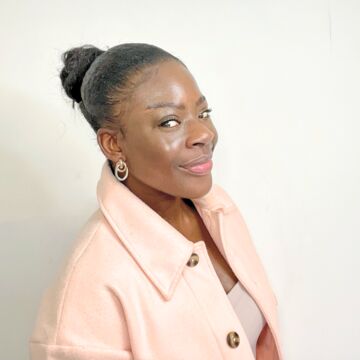

Vanessa Damilola Macaulay
Assistant Professor
Contact
Bio
Vanessa Macaulay is an artist-scholar whose work develops Black feminist approaches to performance through practice and theory. Her research demonstrates how the histories and material realities of Black women’s bodies call for methods that exceed conventional artistic and academic frameworks. She creates new pathways for thinking about experimental forms of making, the body as a site of knowledge and resistance, and the cultural narratives that shape Black life.
Since 2016, Macaulay has created and toured solo performances across the UK, Europe and South Africa with presentations at institutions including Derby Theatre, The Yard Theatre, and Camden People’s Theatre, and at festivals such as Plymouth Fringe, Croydonites, Glasgow Buzzcut, and Talawa Firsts. Working across live performance, movement, video, duration, and objects, her practice often begins from autobiographical traces and expands outward to interrogate Black British experience.
Macaulay’s scholarship and practice together foreground Black feminist theory as both a mode of critique and a method of making. In doing so, she offers a model of research that is as critically incisive as it is artistically inventive.
BA (hons), 2014, University of Lincoln, UK; MA, 2016, Trinity Laban Conservatoire of Music and Dance, London UK; PhD, 2022, Queen Mary University of London, UK. Performances: The Yard, London UK; Derby Theatre, UK; Buzzcut Glasgow; Croydonites; Camden Peoples Theatre; Plymouth Theatre; Chishenhale Dance Space; Talawa. Publications: Contemporary Theatre Review, Interventions, Performance Research Journal, Cambridge Companion.
Publications
Peer Reviewed Articles
2025 [Forthcoming], ‘Crimes Against the Breath,’ Performance Research Journal; 2024, ‘No Safe Place, Black Women, State Violence and Cultural Production’, Feminist Theory Journal 0(0); 2023, ‘Breathing Space: The Invitation to Exist and Breath’, Performance Research Journal 27(6–7), 154–162; 2022, ‘Blackness and Self-Imaging: Lorraine O’Grady’s Performance as Mademoiselle Bourgeoise Noire’, Contemporary Theatre Review. 32(1), 4–20.










